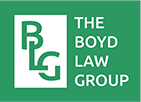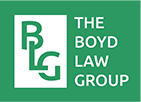Brandi Levy, a student at Mahanoy High School (MAHS), was finishing her freshman year when she tried out for and failed to make her high school’s varsity cheerleading team. When she was at an off-campus convenience store over the ensuing weekend, a frustrated Levy posted a photo of herself on Snapchat with the caption “F*** school f*** softball f*** cheer f*** everything.” The post was accompanied by a photo of Levy and a friend displaying their middle fingers to the camera.
Levy’s post was visible to about 250 people on the social media network, many of whom were her peers at MAHS and some of whom were cheerleaders. It was intended to disappear consistent with the Snapchat protocol, but several students who saw the post approached the cheerleading coach and expressed concern that it was inappropriate. The coach decided Levy’s post violated team and school rules, and Levy was suspended completely from the cheerleading program for the year.
Levy, represented by the American Civil Liberties Union (ACLU), sued Mahanoy High School claiming the suspension was a violation of her First Amendment rights. She won in federal district court with the court basically finding that she had not waived her right to speech simply by agreeing to the team’s rules. Furthermore, because the Snapchat was taken off-campus, the court held her speech was not subject to school-time regulation, and her Snapchat did not rise to the level of disruption required to warrant discipline. In 2020, the school district appealed the district court decision and the U.S. Court of Appeals for the Third Circuit again sided with Levy holding that school officials do not have the authority to discipline off-campus speech by students. The Circuit court ordered that Levy be allowed to rejoin the cheerleading team and found that “public schools have an interest in teaching civility … but they may not leverage the coercive power with which they have been entrusted to do so.”
In April 2021, the Supreme court agreed to hear the case.
While this is not the first time that the Supreme Court has had to decide whether public school students should be disciplined for controversial speech, it has been more than fifty years since the issue has been considered in detail. The precedent most on point was set in 1969, in Tinker v. Des Moines Independent Community School District. In Tinker, students wore black armbands to protest the Vietnam War over the objections of the school administration. By a vote of 7 to 2, the Supreme Court ruled that the First Amendment protects student speech on campus as long as it does not “materially and substantially” interfere with school activities. Justice Abe Fortas famously declared that students could not be forced to “shed their constitutional rights” to free expression “at the schoolhouse gate.” In Levy’s case, the Supreme Court justices were being asked to figure out whether Tinker can be applied outside of the school environment, and with a notably different character of speech.
Times have changed dramatically since 1969, of course, which makes the decision even more interesting. Indeed, Levy’s case arrives in an era when schools across the nation are struggling to sort through novel challenges posed by the widespread use of smartphones and social media with which school related speech can be made at any time and from any place. This case has the potential to set the stage for a possible landmark shift in how student speech can be regulated in modern times.
On Wednesday, April 28, 2021, the Supreme Court heard oral arguments from both sides. The school argued that it should be allowed to regulate off-campus speech that creates a danger of harassment, bullying, threats, or other disruptions that targets schools. Levy’s attorney argued that speech that occurs at school should be entirely separated from speech that is made outside of school grounds and time, warning that expanding Tinker to off-campus speech would open the floodgates in allowing overly harsh regulation of students. The justices appeared somewhat divided on the issue, with some suggesting that giving schools broad power to regulate off-campus speech was too dangerous. Justice Breyer noted that “every school in the country would be doing nothing but punishing.” Other justices thought a bright-line rule forbidding regulation of off-campus speech would open the door for cyberbullying and other potentially harmful online activities.
On June 23, 2021, the Supreme Court ruled in favor of Levy in an 8-1 majority opinion written by Justice Breyer. The Court found the punishment that school officials gave to Levy for her social media post violated her free speech rights under the First Amendment. The Court held, however, that public schools do have the power to regulate certain types of speech that occur off-campus, with Justice Breyer writing that “the school’s regulatory interests remain significant in some off-campus circumstances.” As expected, the ruling left the door open for future cases and courts to outline the scope of those regulatory powers.
It will be interesting to see how this decision is applied by courts as they try to use age-old free speech legal precedents in an ever-changing landscape of new technologies and with the explosion of social media. At The Boyd Law Group, we are following cases like this relating to education, employment and labor law. These are exciting times in the evolution of law with remote speech being just one component of changes to the educational and work lives of many Americans.

